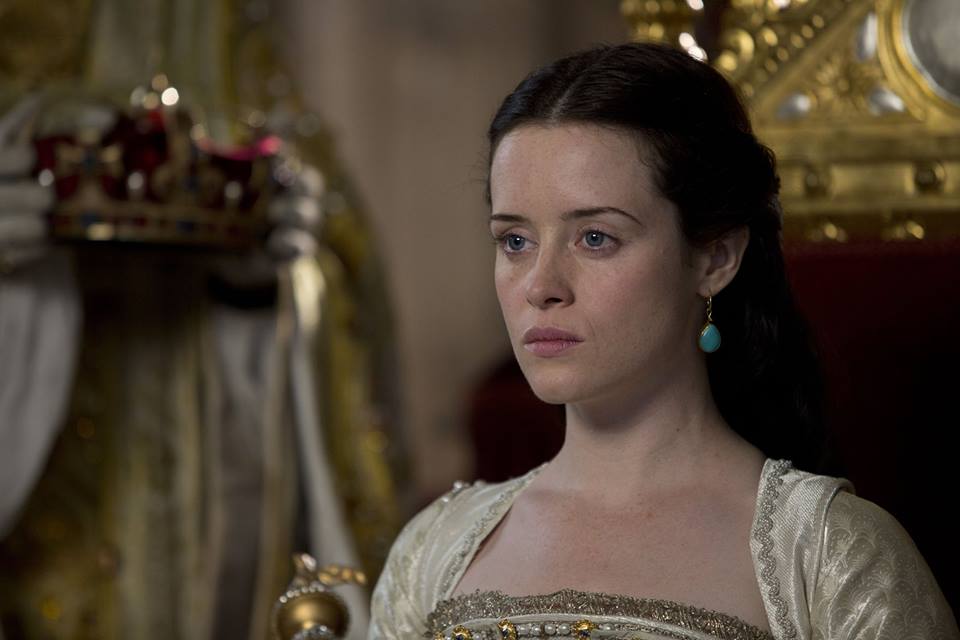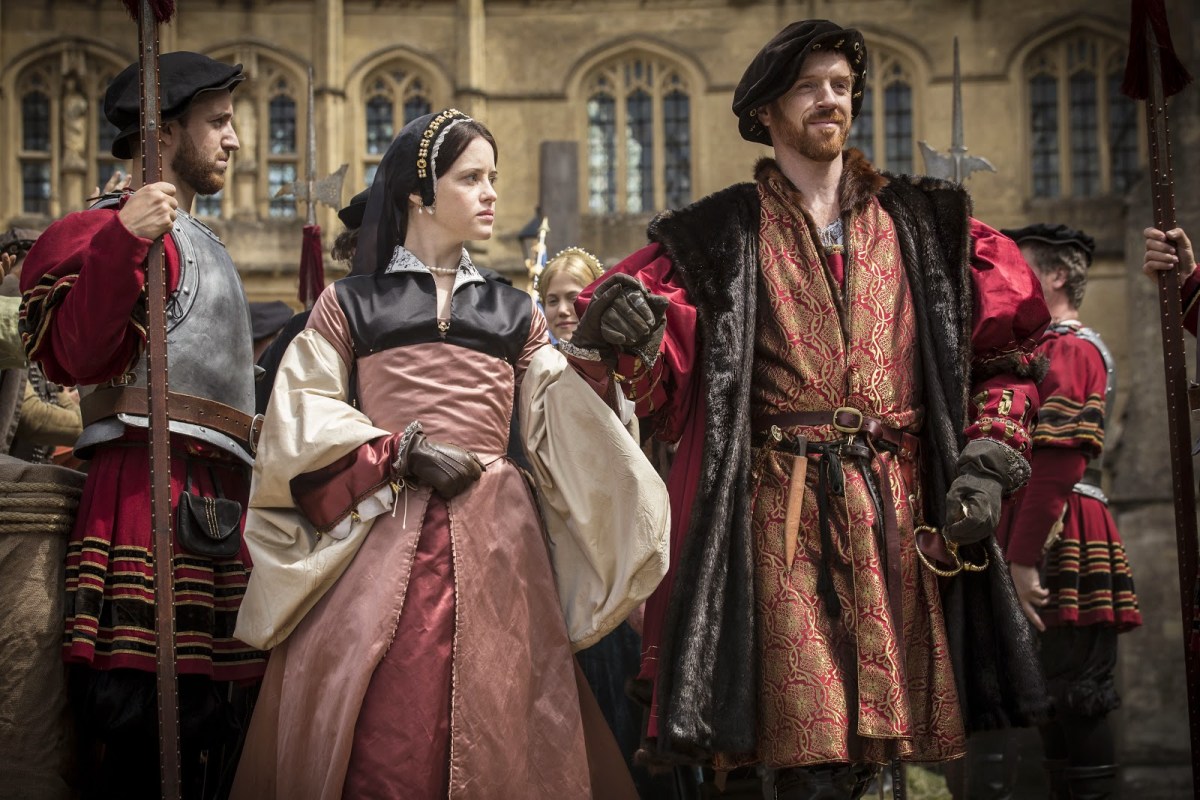The new PBS miniseries Wolf Hall, about the rise of King Henry’s advisor Thomas Cromwell, is one of the few times I’ve watched a miniseries on Masterpiece Theater and thought “I wish this were a seasonal series.” Structurally, the six-part series feels alternatively slow paced and rushed in parts, because covering the events in the historical novels Wolf Hall and Bring Up the Bodies by Hilary Mantel is a lot of material. The books focus on the day-to-day lives of royal politics in the days of King Henry the VII,I which tend to work great on TV (see: The Tudors), and Wolf Hall succeeds most when it really focuses on Cromwell’s dealings with one person; specifically, one episode which focuses on Thomas More and Anne Boleyn.
Cromwell, played by Mark Rylance, starts out the story as a man who has built himself up to a position of power in a time when that was nearly impossible, by using his smart, calculating, and pragmatic approach to politics, business, and policy. Cromwell has two daughters and a wife he shows love and affection for, and son he cares for despite his absence. He is brought into court first to be an advisor of the chancellor Thomas More, but ultimately becomes Henry VIII’s (played by the always-wonderful Damien Lewis) chief advisor, when he wants to break from the Catholic Church and name himself head of the Church of England. Cromwell does all this so Henry can divorce Queen Catherine and marry Anne Boleyn (Claire Foy). Boleyn claims she brought Cromwell into his position, who eventually causes her fall from grace in order allow Henry to divorce and marry a third wife.

The story isn’t new, but telling the story from the perspective of Cromwell, often presented as a villain in stories such as A Man for All Seasons, gives the character complexity and nuance without making him into anything more than an anti-hero. Like Walter White in the Tudor dynasty, Cromwell’s rise and fall is something to behold, and Rylance is great at showing the emotional truth behind his hard exterior. But the miniseries is at its very best Rylance is acting opposite Claire Foy, especially in the final episode, when the two go up against each other despite barely moving. Despite all we know Cromwell is willing to do (there are a lot of mentions of his using torture to secure confessions), Boleyn is the only one who seems capable of holding out to the end. All the men brought in tumble, but she holds up until her death – and Rylance and Foy’s back and forth is something to behold.
The reason the final episode is so good is that the moral implications of essentially being responsible for executions are brought home. Whether guilty or innocent of treason, infidelity, or incest, Anne Boleyn was put to death because the King wanted it done, so that he could marry another woman and have an male heir. We spend five episodes hearing that Boleyn is trying to have a male heir, and feeling shame for miscarrying multiple times despite having the future Queen Elizabeth. All the while, she retains a cruel, steely disposition which she uses to demonstrate her position as a woman who marries into power, but has none of her own, ridiculing and teasing her court and those beneath her like a teenage queen bee. You will hate Anne, but at the same time, you’ll be saddened by her ultimate demise. Even Cromwell, who comes to hate her for her cruelty and her attempts to take away his power, acknowledges that bringing about Boleyn’s down fall for the pleasure of his king is disturbing.
It’s somewhat surprising that Lewis has so little to do in the six-part miniseries, despite being second billed; he’s good, but not spectacular, as the younger King, certainly channeling the classical image of Henry VIII (before he became a very large man). The entire production value in this miniseries is pretty remarkable; the costumes are beautiful and informative, including the use of fabrics and furs to suggest status and position. The sets are faithful, and the recreation of the towers used as prisons are genuinely unsettling to behold. The writing, although often surprisingly modern, often includes fascinating dialogues about the inner workings of royal court when royalty was all powerful.
Wolf Hall premieres on PBS tonight at 10pm, and concludes on Sunday, May 10th.
Lesley Coffin is a New York transplant from the midwest. She is the New York-based writer/podcast editor for Filmoria and film contributor at The Interrobang. When not doing that, she’s writing books on classic Hollywood, including Lew Ayres: Hollywood’s Conscientious Objector and her new book Hitchcock’s Stars: Alfred Hitchcock and the Hollywood Studio System.
Are you following The Mary Sue on Twitter, Facebook, Tumblr, Pinterest, & Google +?









Published: Apr 5, 2015 07:00 pm